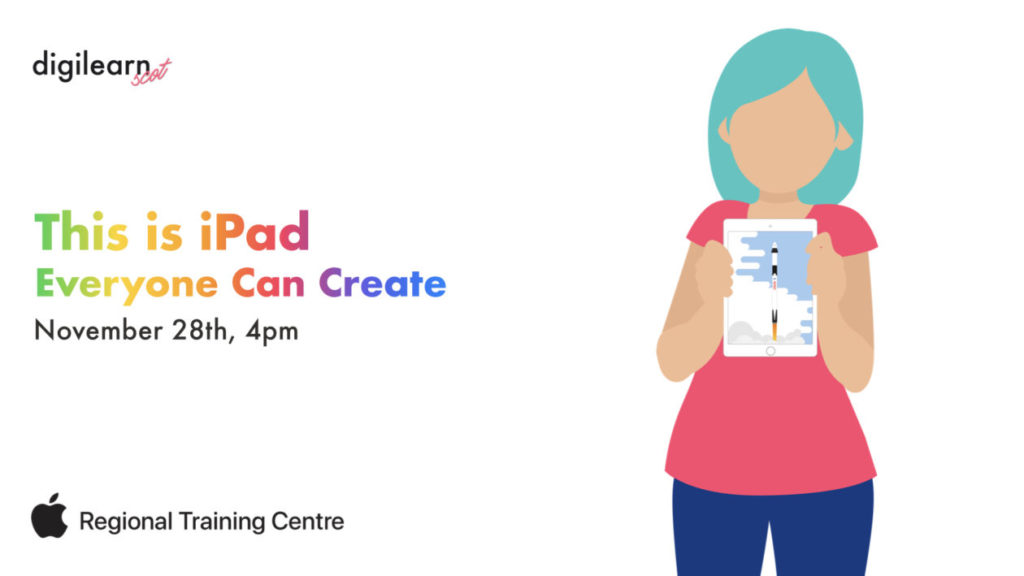YOU CAN NOW LISTEN TO AN AUDIO ONLY VERSION OF THE CALL
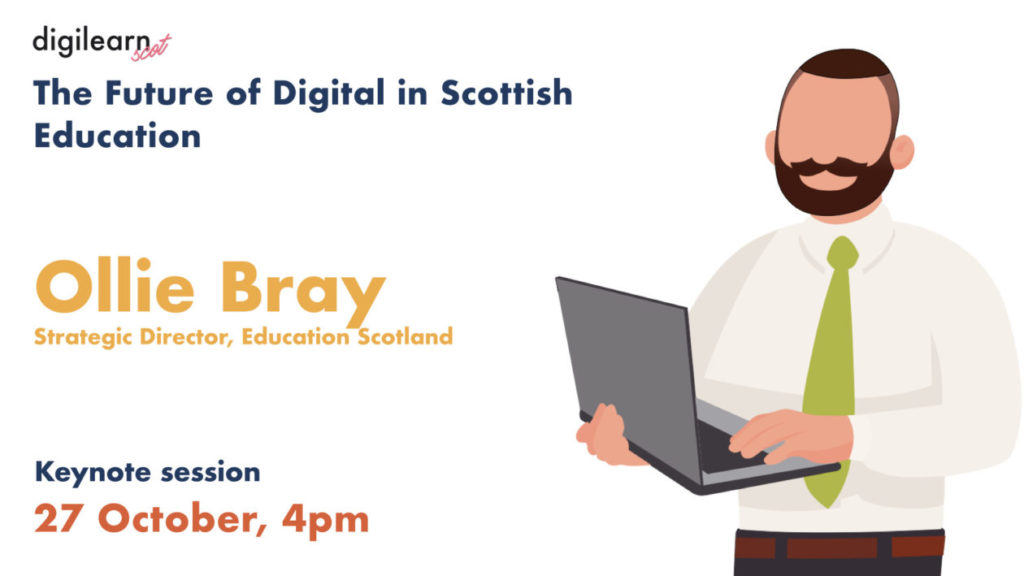
YOU CAN NOW LISTEN TO AN AUDIO ONLY VERSION OF THE CALL
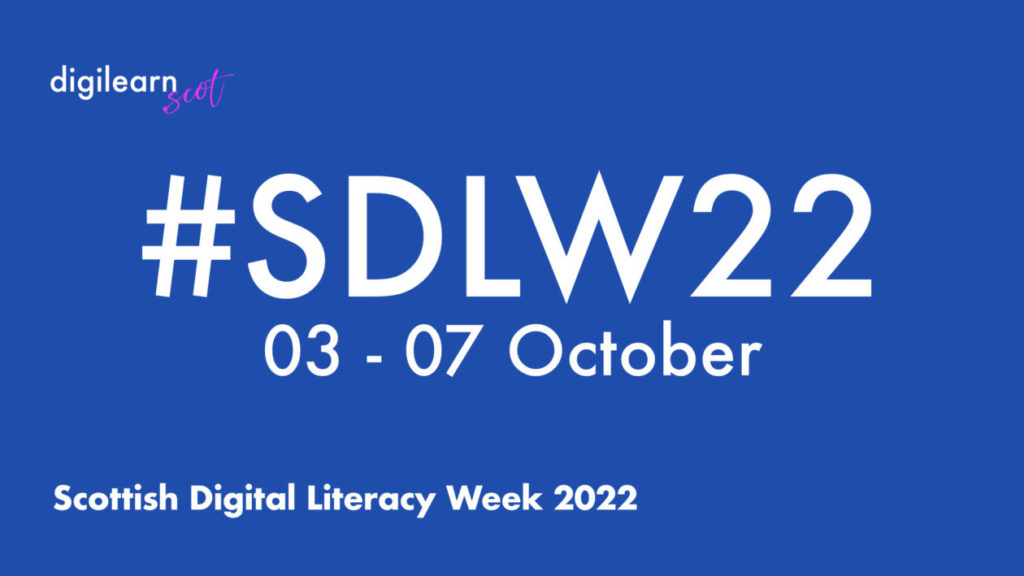
We’ll have more details of what to expect in these lessons nearer the time, resources you might require and skills you’ll need. There will be teacher training sessions throughout September to ensure you have the skills and knowledge to support learners in these live lessons.
These lessons and follow-up activities will be base don our refreshed digital literacy support for 22/23.
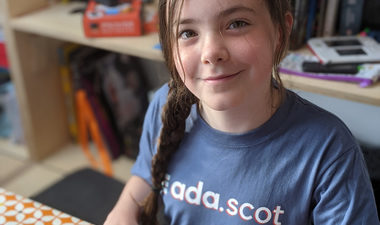
It’s well known that Computing Science has much to do in way of gender balance. According to a report published by the BCS (2020), just 12% of pupils taking National 5 Computing Science in Scotland in 2020 were female. This figure falls to 7% for female pupils taking Computing Science at Higher, and just 2% at Advanced Higher.
Of course, these figures are reflected in uptake of Computing Science at university and college, and in Scotland’s tech workforce. But we lose potential female talent long before choices are being made about university courses and career paths. From primary school – if not even earlier – girls are given the impression that computers are ‘not for them’.
For example, one of our current female Graduate Apprentices at the University of Glasgow was told that she should study administration, rather than computing. Why? Because she was a girl. Now, years later, she’s changed careers and is excelling on our Software Engineering programme.
Closer to home, when my own daughter was in Primary Two, she was told (by a male pupil) that she couldn’t choose Pokémon as her ‘show and tell’ topic. Why? Because computer games were for boys.
These examples hopefully illustrate what we’re up against, and why the Ada Scotland Festival exists: to challenge stereotypes and encourage more women and girls to get involved in Computing Science.
The Ada Scotland Festival brings together partners involved in addressing gender imbalance in Computing Science and tech across Scotland. Our partners include employers, universities, and schools, delivering a range of talks, competitions, and activities in October each year.
The Festival launched in October 2020, featuring 32 partners, 16 live events, and dozens of other activities. In 2021, we featured 19 live events and many new partners, and the 2022 Festival – due to kick off at the new Barclays campus in Glasgow on 12 October – is shaping up to be bigger still.
This year, we’re delighted to be able to offer some in-person events for the first time, in addition to online sessions. All of our events will be posted at https://ada.scot/2022. If your school would like to get involved, please drop us a line at hello@ada.scot – we’d love to hear from you.
In the meantime, you can find details of many of last year’s events and activities on the ada.scot website. There are also video recordings of many of our previous events. And, if you’d like to stay in touch please register for our newsletter.
By working together, we can ensure the opportunities offered by Computing Science are available to all – join us!
Dr Matthew Barr is Director of the Ada Scotland Festival – https://ada.scot/
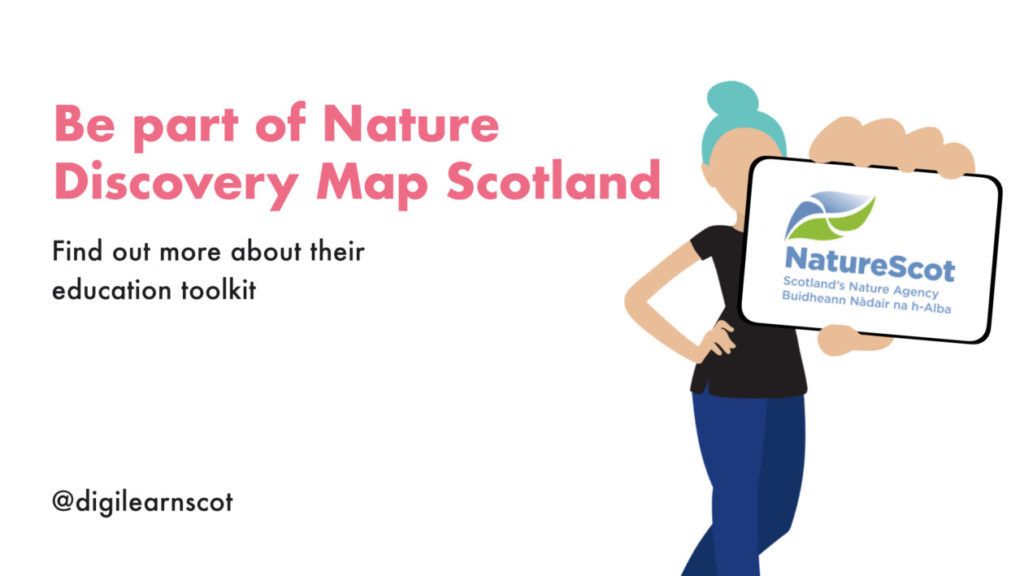
How do I get involved or find out more?
Check out our Nature Discovery Map Scotland webpage or contact:
Sue Munro (Project Manager) by email sue.munro@nature.scot
Sharon Cunningham by email: Sharon.cunningham@nature.scot
Penny Martin by email: penny.martin@nature.scot
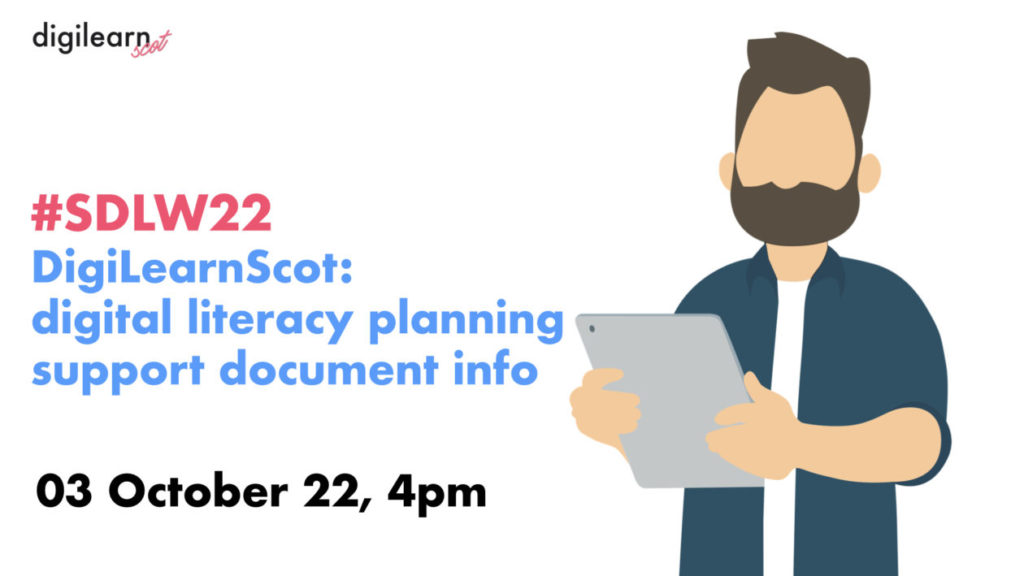
This webinar will provide first access to the brand-new Digital Literacy Planning Support document (currently for first and second level) from Education Scotland. This document is designed to support educators plan, resource and assess digital literacy in a range of contexts with distinct themes, example activities and skills and knowledge identified for each distinct context
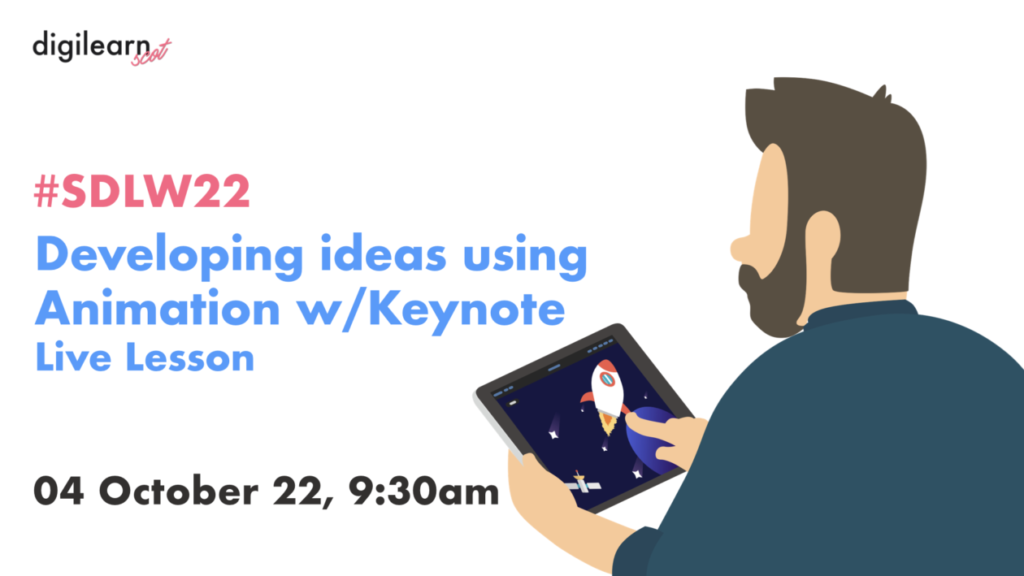
In this lesson from DigiLearn learners will go through a step-by-step tutorial to create an animation using the Keynote app on iPad.
Animating ideas is an excellent way for pupils to visualise and share their knowledge. From animations describing the journey of Jacobite soldiers, to story boarding ideas for a creative writing project. Using out of the box tools and features, pupils can easily visualise the story they wish to tell and share their understanding in a modern and exciting way.
Whilst this lesson will use the magic move component on Keynote and iPad, the methods and techniques are transferable to a number of curricular areas and apps.
It is advised that if you attend this session, you have access to an iPad and Keynote. The step by step instructions and hands on will use the features inherent to this app – we appreciate that not all pupils will have access to this.
If you wish to attend and use another tool such as PowerPoint, you are welcome to do so but please note that you will not be able to replicate in exactly the same manner
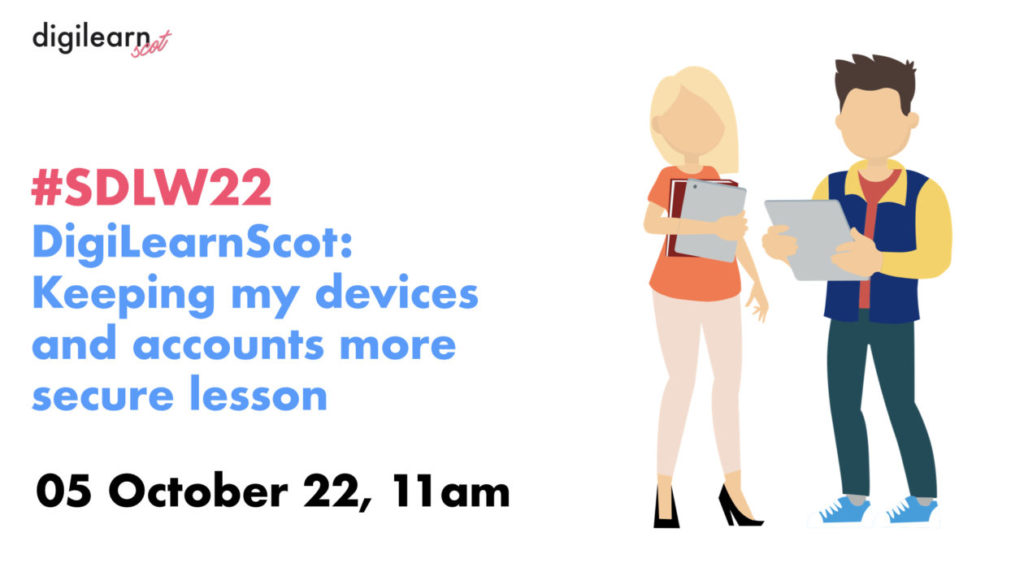
Learners will explore how their devices store data, how they connect to the internet, and how to keep them more secure
Learners will:
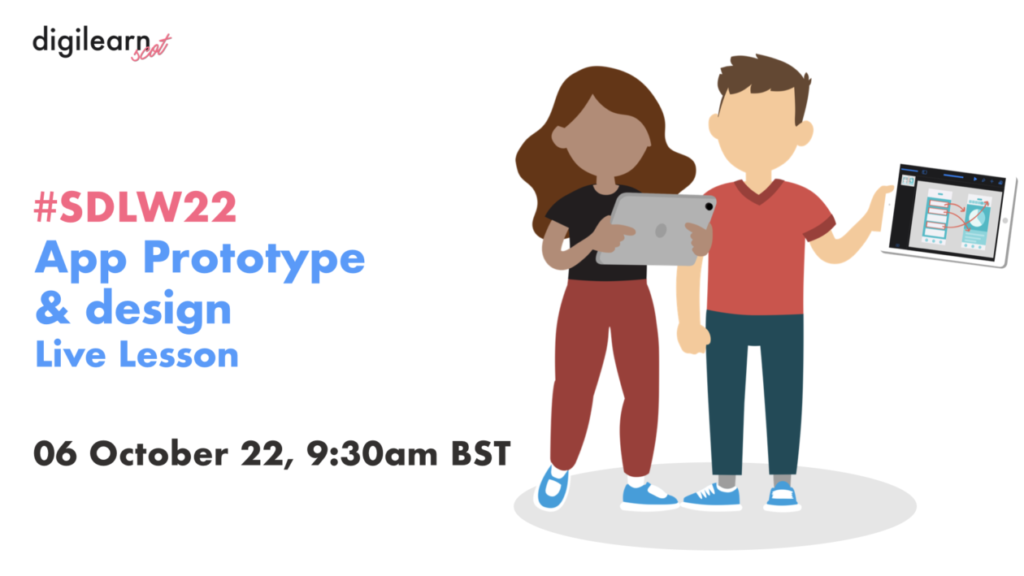
Join the DigiLearn team for a live lesson exploring the impact of apps on our lives and lead learners through the steps to create their very own app designs.
Designing apps is a great way to work together and solve challenges that exist in the community. This virtual app prototyping activity will give aspiring coders a chance to celebrate their ingenuity as they develop their ideas and share solutions with their peers.
The best apps start with an idea, and this activity will start the same. Before attending, it is advised to brainstorm an idea with pupils. Think of the purpose, who will benefit, what problem will it solve or is it simply an entertaining way to share information.
Using the PPT/Keynote template you will build your prototype to figure out exactly how your app will work and what the user experience will be.
You will then have the opportunity to build your working prototype that you can share for feedback and evaluation.
This lesson will be led on Keynote on iPad but other presentation apps, such as Google Slides or PowerPoint (desktop/app), can be used in the same way. We will share a template that can be easily edited on PowerPoint (online version users can edit content but not the navigation buttons).
There will be a short video tutorial on how to create the template, link slides, and use navigation buttons in PowerPoint/Keynote.
If you wish to prototype an app using pencil/paper you are more than welcome to watch along and gather ideas.
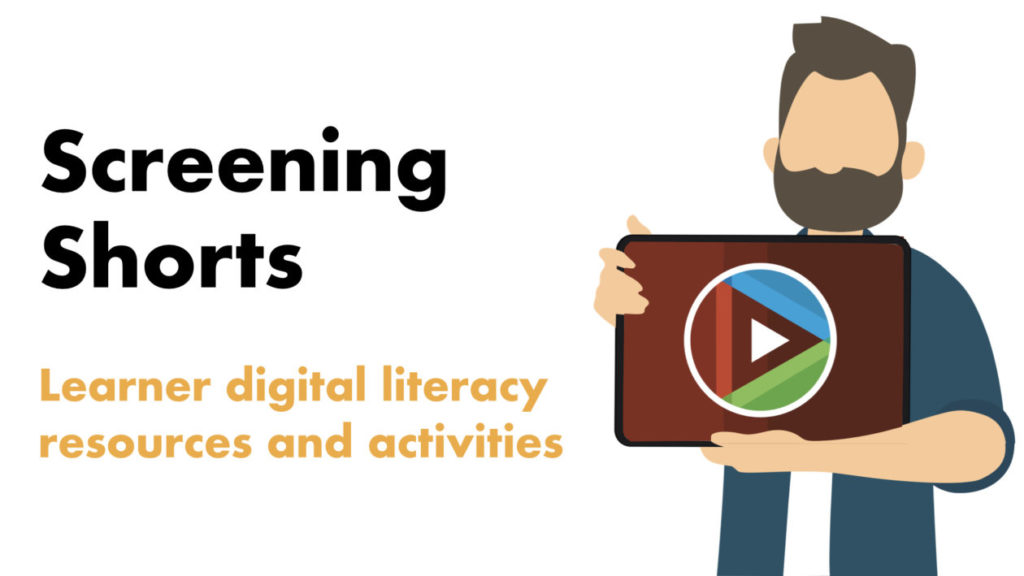
This live lesson will give your learners an opportunity to explore film and screen images as texts. They will explore strategies to make predictions about a film, then use still images from the film to learn about sequencing a screen narrative, leading to the first steps to creating their own short film.
The text we’ll be exploring is ‘Mobile’ on Screening Shorts (GLOW LOGIN REQUIRED).
In this adorable animation, a lone cow hangs by herself on one side of a child’s mobile. Although her weight balances that of the others on the opposite side, she feels lonely. When kindly Mouse invites Cow over, and she tries to find ways to join the animals on the other side, chaos ensues. Can they find a balance?
How to make a copy of the O365 Whiteboard | Google Jamboard
How to download or print the slides PowerPoint | Slides | Keynote
How to make a copy of the slides and share with your learners PowerPoint | Slides | Keynote
How to add speech bubbles PowerPoint | Slides | Keynote
How to record and add audio PowerPoint | Slides | Keynote
